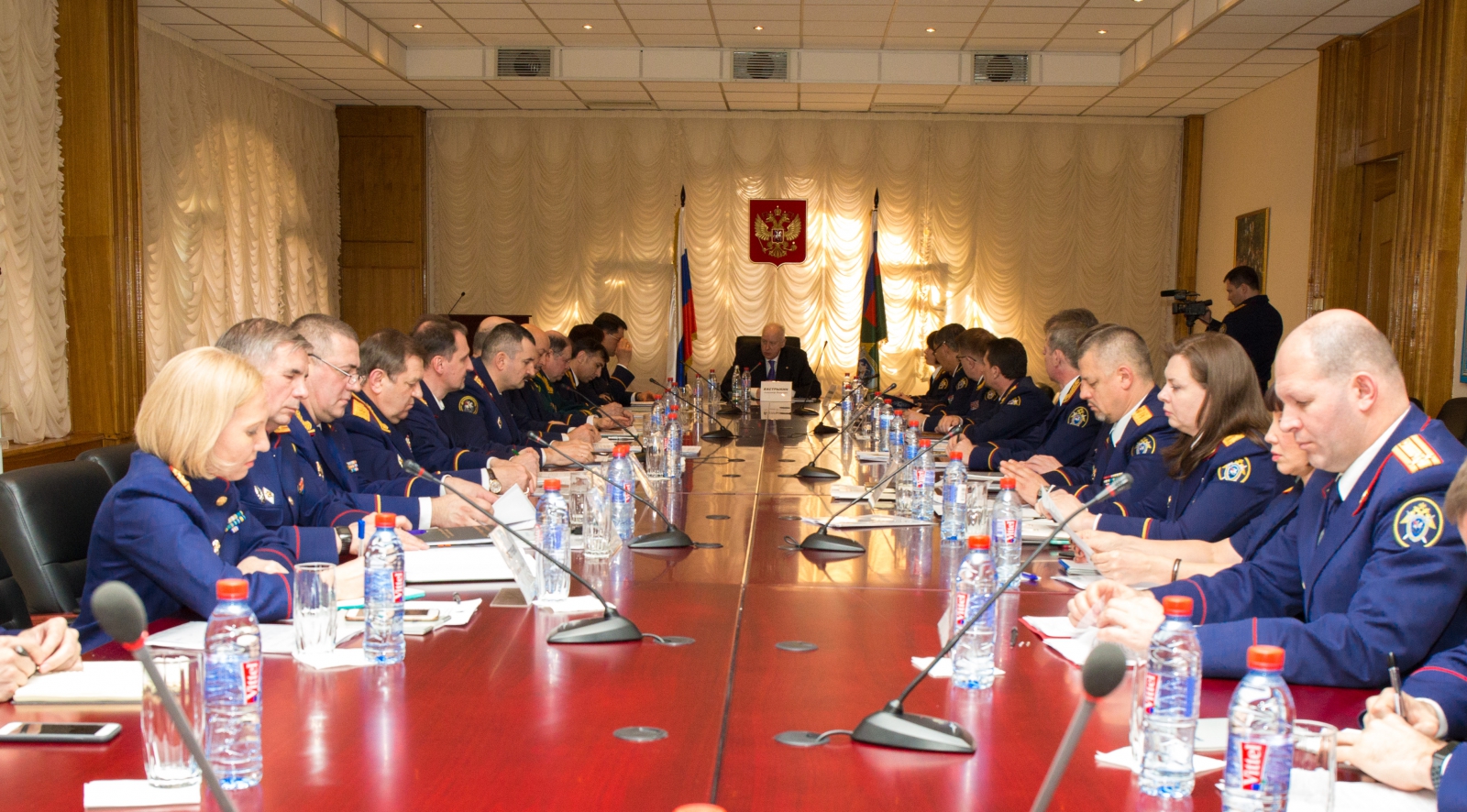
Address of the reception office of the Investigative Committee: Moscow, ul. Pervaya Frunzenskaya, d 3a
Address for writtent applications: 105005, Moscow, Tekhnichesky Pereulok, 2
Address of the reception office of the Investigative Committee: Moscow, ul. Pervaya Frunzenskaya, d 3a
Address for writtent applications: 105005, Moscow, Tekhnichesky Pereulok, 2

Chairman of the Investigative Committee Alexander Bastrykin has held today a meeting of the Council of heads of the Investigative Committee’s divisions. The event took place at the Investigative Committee and was attended by the members of the Council and some heads of the divisions of the Investigative Committee’s central office.
The meeting continued discussing criteria of assessing the work of the Investigative Committee’s divisions and pressing problems of educating employees of the Investigative Committee in order to build up professionally important qualities in them.
Following results of previous meetings, methods of assessing the work of investigative authorities was prepared for today’s meeting. The results are calculated from the data of federal and intradepartmental statistics forms. Mr. Bastrykin noted that the assessment criteria should be just, authentic and verifiable and should take into account response to complaints filed by citizens. Mr. Bastrykin believes that it is important to consider many aspects and conditions of work in territorial divisions when building those criteria.
Speaking about educational work, Mr. Bastrykin said that it often happens that employees coming to work in investigative authorities are not ready morally in the first place to hardships and challenges they have to face in real work. “This is why the aim of educational work we should reach together is building a team of likeminded professionals who value the reputation of the agency, are fully dedicated to their work, have high moral qualities and can resist stress,” said the Chairman.
The council decided that they should continue develop responsible attitude to their job, fellowship, mutual assistance in employees, to study morale in investigative divisions and to use more widely testing using advanced methods. Based on the example of implemented joint projects it can be stated that they are of great interests for both young employees and cadets.
A draft conception of educational work at the Investigative Committee developed considering modern requirements was presented to the council. The document sets out basic principles of educational work in the Investigative Committee, its goals and defines what the officials should do to organize it.
Head of the Investigative Committee’s Volgograd Region Office Mikhail Muzrayev, head of the Moscow Directorate Alexander Drymanov, head of the Perm Territory Office Marina Zabbarova, head of the Bashkortostan Office Grigory Zhitinyov, head of the Kabardino-Balkaria Office Valery Ustov, head of Udmurtia Office Vladimir Nikeshkin, head of the Kaliningrad Region Office Viktor Ledenyov and others weighed in the discussion.
Some of the heads shared experience in organizing educational work, including that involving youth and stated that such events lead to building up correct values in teenagers and would later contribute to staffing the Committee. In addition, the present discussed positive experience of involving a staff psychologist in working in investigative divisions. According to the participants of the meeting, daily psychological aid is necessary to young investigators who investigate major crimes committed against people, and especially children. It is highly important to use modern specialized psychological methods.
In conclusion, Mr. Bastrykin supported the offers put forward by the members of the Council noting: “We must raise true officers who love their homeland, who are reliable and faithful to their duty, who want to serve the truth, justice and law.”
Official spokesperson for the RF Investigative Committee S.L. Petrenko